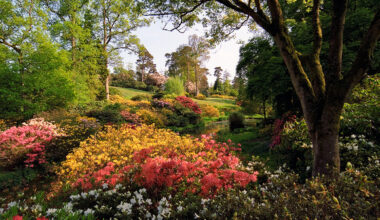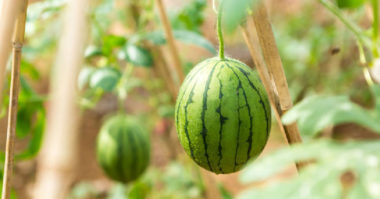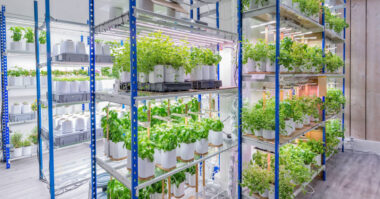Potted plants have for food only what the substrate in the pot can provide. This means that their nutrient reserves are limited! It is therefore incumbent on the raised bed to provide them with adequate and well dosed fertilizers to see them beautiful and healthy, in the long run.
The organic element is assimilated at maximum (never 100%) after 2 to 3 weeks.
Contents
How long does it take for the fertilizer to be absorbed by the plant?
Mineral fertilizers
Mineral fertilizers are quickly absorbed by plants, so if you apply high doses to your plants, they will eat it in no time, and you will see much more excess than with organic fertilizers. However, when used properly, they can provide better structure than naturally occurring fertilizers. The main disadvantage of minerals is that they contaminate the soil with salts that the plants do not eat, and this salinization blocks the growth of the plants.
All this will happen if you overuse fertilizers, but if you stay within the normal range of application, you will have nothing to worry about. Moreover, if you grow in pots, you will not have a problem because once the crop is finished, you will get rid of the soil, and therefore of the accumulated salts; whereas if you plant on the ground in a vegetable garden for example, you could contaminate your land by using mineral fertilizers crop after crop.
Organic fertilizers
Organic fertilizers take longer to be absorbed by the plant, so you will need to water once or twice a week at the most, to avoid the risk of over-fertilization. By watering with this type of fertilizer, not everything is eaten at once, so the nutrients remain impregnated in the soil, this is why it is also important to water only once before using organic fertilizer in the watering.
What is the difference between organic and mineral fertilizers?
Organic fertilizers come from natural waste, whether plant or animal. Mineral fertilizers come either from deposits or from the chemical industry. Organic fertilizers are slower to be assimilated by the plant while mineral fertilizers are assimilated very quickly. Nevertheless, natural organic fertilizers are respectful of the planet and do not impoverish the soil.
Organic fertilizers
Organic fertilizers have multiple advantages: in addition to respecting the environment because they are derived from the recycling of organic matter, they also respect plants. Some fertilizers will have a quick effect, such as guano or dried blood. Rich in nitrogen and phosphorus, they allow the plant to grow quickly, without burning its roots. These fertilizers should be used in the spring, for your new plantings.
Crushed horn, for example, has a longer-lasting effect: it is a so-called background fertilizer. Rich in nitrogen, it is deposited around the plant and allows it to feed for several months. It is ideal for autumn planting (to fortify the plants before winter), but it can also be used in spring. Don’t hesitate to use these basic fertilizers when you prepare your ground, before planting.
Mineral fertilizers
Complete fertilizers are very often derived from chemistry and are composed of several minerals: nitrogen, potassium, phosphorus. You will find in store precise dosages corresponding to the different types of plants. Chemical fertilizers have the advantage of being used immediately by plants, and act more quickly than organic fertilizers. However, they feed the plants but not the soil!
They quickly need a new “whiplash” fertilizer, while at the same time the soil is altered by these chemicals. You can use these fertilizers during spring watering for example, but also in autumn. However, beware of the risk of overdosing: these products can burn the roots and impoverish the soil. They should be used with care. Instead, choose products that are more respectful of nature.
Natural fertilizers: homemade recipes
Look around; you will surely find something to feed your potted plants, cheaply and ecologically!
- Compost: when you surface your plants, replace the removed substrate with compost. As it decomposes with each watering, it enriches the substrate and nourishes the plants.
- Coffee grounds: organic matter rich in potassium and magnesium that is immediately assimilated, but also in nitrogen (released gradually). It should be sprinkled on the surface of the substrate before watering.
- Used tea leaves (after infusion): scratched on the surface, the tea gradually releases nutrients and enriches the substrate with organic matter.
- The cooking water of the eggs, cooled: rich in minerals, it is the only fertilizer my grandmother brings to her house plants, once a week; they are beautiful!
- Vegetable cooking water: some of the vitamins and minerals they contain have diffused into the cooking water; don’t throw it away!
- And then: of course there are the plant manures but the smell can be a brake to their use, the red wine glass bottoms (to be checked!), the feather meal (for those who have a lot of birds at home)…
When to apply fertilizer?
Natural fertilizers can be applied at the end of winter, one to two months before sowing in the vegetable garden. Thus, they will gradually feed the soil throughout the season. It is also advisable to apply a thick layer of compost at the end of autumn, so that it can decompose during the winter. In summer, no need for fertilizer, the hours of sunshine are sufficient for plant development.
How much fertilizer should be applied?
The dosage depends on each natural fertilizer chosen. Observe the instructions on the packaging. Indeed, even if they are organic, do not overdose, it can be very harmful to the soil and plants.
Summary
Organic and mineral fertilizers are fertilizers that feed the plants or the soil to provide a dose of additional nutrients that can be assimilated more or less quickly.
What is the difference between organic and mineral fertilizers? How are they assimilated by plants? How long does it take to absorb them? We explain everything about fertilizers in this article.









